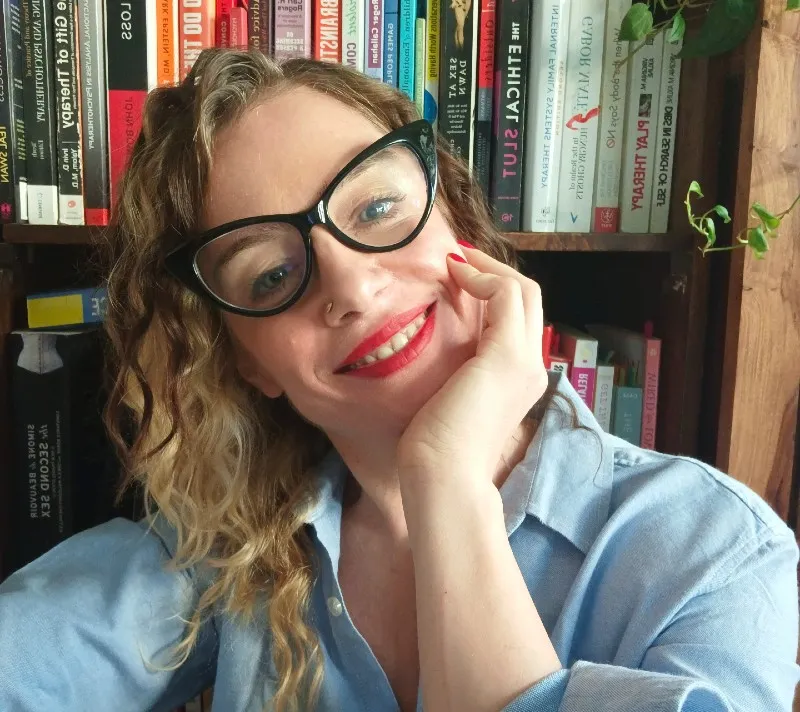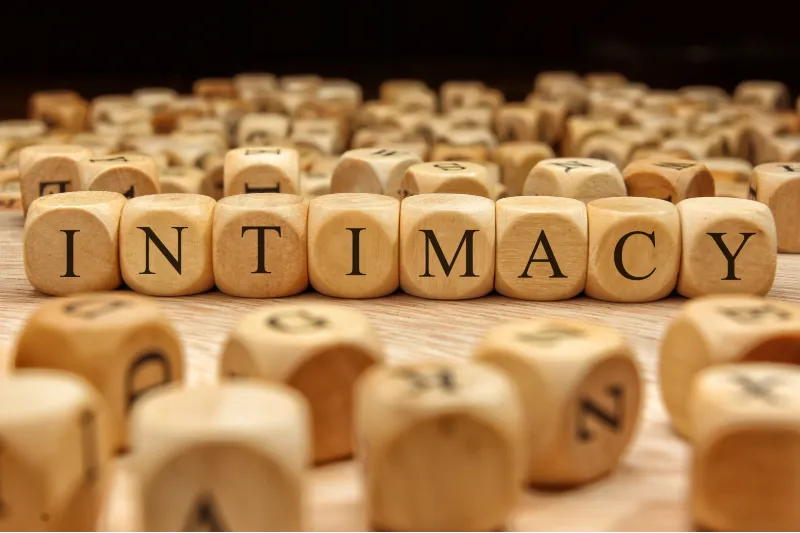Meet the relationship coach who aims to address all modern-day needs and problems
Mumbai-based Aili Seghetti offers unique coaching services under her brand The Intimacy Curator, and addresses a variety of problems within modern relationships.
The spectrum of relationship coaching is no longer limited to sorting issues in failing marriages. It must also address the needs of a large number of young professionals who find themselves single and lonely in their 30s and 40s, after a string of unsuccessful relationships.
Just ask Mumbai-based Aili Seghetti, intimacy coach and Founder of The Intimacy Curator, an organisation that promotes self-discovery through emotional and sexual wellbeing.
“I started practising counselling in 2019 and then trained under the Somatica Method in 2020. I was already practicing intimacy coaching at this point, and launched The Intimacy Curator after I realised that I needed a team to address different and unique spaces in intimacy. The idea was to create a space for people to explore themselves through emotional and physical intimacy, and normalise their experiences,” shares Aili in a chat with YS Weekender.
In search of intimacy
Originally from Finland, Aili has lived in India for 15 years. She worked in design thinking-driven consumer research for a decade with tech clients like Tinder, Bumble, Facebook, Google, and Pinterest.
She believes the skills and frameworks used in research are directly related to psychology and psychotherapy although their goals are different. In consumer research one works with advertisers (agencies and brands) with the end goal of improving and selling goods and services, while in psychotherapy the same frameworks are used to help people process experiences and emotions.
By relying on her unique professional knowledge and curious and empathic nature, Aili wanted to offer co-created solutions for people facing intimacy challenges.
She says, “Professionally the jump made sense because I was halfway there; I just needed to change perspective and the goal for my interactions with people. I added professional training to offer the services of intimacy coaching.”
“I hold a degree in Hindi and Cultural Studies from the School of Oriental and African Studies (SOAS) London and a certificate in Orientation to Psychotherapy and Facilitation from Spring Counselling & Psychotherapy Centre. I then attended a Sex and Intimacy Coaching course at The Somatica Institute in LA, a course in Neurodynamic Breathwork and one in Compassionate Inquiry designed in collaboration with Dr Gabor Maté, an expert in trauma, addiction, stress and childhood development.”
The Somatica Method is unique to India. It is an experiential method suitable for people who are interested in exploring intimacy hands on, and is a great tool for clients with low sex drive and fear of physical intimacy, as well as more debilitating issues such as sexual abuse trauma, erectile dysfunction, and premature ejaculation.
“Most therapists offer talk therapy and therefore do not fill the gap between theory and actual physical practice. During sessions, experiential learning is done through touch, cuddling, and intimacy role play - something still taboo in the country. However, in my practice, the clothes are kept on and genitals are not touched.
"The sessions are the closest one can get to physical intimacy within legal boundaries and are extremely useful for people who are afraid of reaching out to partners, for whatever reasons,” says Aili, explaining the difference between her practice and that of traditional relationship therapists.

Aili Seghetti, Founder of The Intimacy Curator, wanted to create a space for people to explore themselves through emotional and physical intimacy, and normalise their experiences.
What’s on offer?
Aili’s practice is based in Mumbai but she also travels to different cities. Her clients include people from India and abroad, including Indore, Madurai, Kolkata, Gurugram, Bengaluru, as well as Mauritius, UK, USA, Dubai, Singapore, and Australia.
She mainly caters to a South Asian clientele as she has been exposed to both South Asian and global culture, and understands specific cultural scenarios such as joint families and arranged marriages. Her knowledge of Hindi helps with clients who are not fluent in English.
When asked what people are looking for in relationships these days, Aili says, “They are looking for everything and that’s their main cause of distress and fear. They expect their partners to be their best friends, best sexual partners, confidantes, travel buddies, spiritual companions, bond with all their family members. It’s an extensive list and we forget that it never used to be like that.
“They (or their parents) then compare modern relationships with those of the previous generation and feel that youngsters are failing. The context is different and today we have more expectations in general so it’s more about prioritising one’s needs and finding out about oneself rather than finding the right match.”
To address these issues, Aili has designed a number of unique methodologies and frameworks to:
- Understand one’s unique sexual dimension - what would make physical intimacy meaningful to a person, what actions, moods and feelings can be used to do that
- Minimise ruptures and risks in long-term relationships
- Orient people to consensual non-monogamy and kink
She refers to Infidelity Navigation and Alternative Lifestyle Coaching as her most popular services, although adds that they are related to other services such as Mismatched Desires or people not connecting on a physical level. Largely, she believes people get married believing that they will make it work but they aren’t equipped with the right tools to make it work, and this causes rifts.
Other popular services include Dating Surrogacy and Matchmaking 2.0 because people are curious about how these new-age services work.

Challenges and growth
Aili has faced a number of challenges in establishing her business. These include finding spaces to conduct sessions, dealing with the challenges of not being able to advertise like other brands, and the absence of word-of-mouth recommendations since people rarely talk about their intimacy issues with others.
“It is a new category/industry. People still don’t see value in talking to a professional about intimacy - they see it as something that should be done for free. People want fast solutions. They also prefer buying products such as sex toys or using medication to solve issues of a sexual nature. But intimacy is built in the mind; therefore, no product or pill can solve the lack of it,” she explains.
`
Highlighting that there is still lots of shame around sex the world over, she believes that lasting change can only happen through the educational system. She also reiterates that it isn’t merely about sex but intimacy in a more holistic sense, inclusive of emotional literacy.
“Our bodies, our emotions, our minds are connected. People often don’t talk about their emotions because they are ashamed of experiencing and expressing them. I help clients connect the dots between their bodies, feelings, and thoughts, and give them informational material to understand the impact of ignoring their bodies, from a pleasure and care point of view.
"A lot of conversations are around what we are doing to our bodies to please others, achieve success, pay rent, suppress emotions, look good, be hyperproductive. All this has an impact on our capacity to experience pleasure and intimacy,” she asserts.
Having amassed a regular clientele, Aili is now looking to expand her practice to include more collective experiences by organising events, workshops, exhibitions, and creating physical spaces to learn about intimacy in a broader way.
Aili hopes to help people create deeper and more fulfilling relationships with one another, and not just in a romantic sense. This includes relationships between siblings, parents and kids, co-workers, friends, etc.
Edited by Teja Lele









